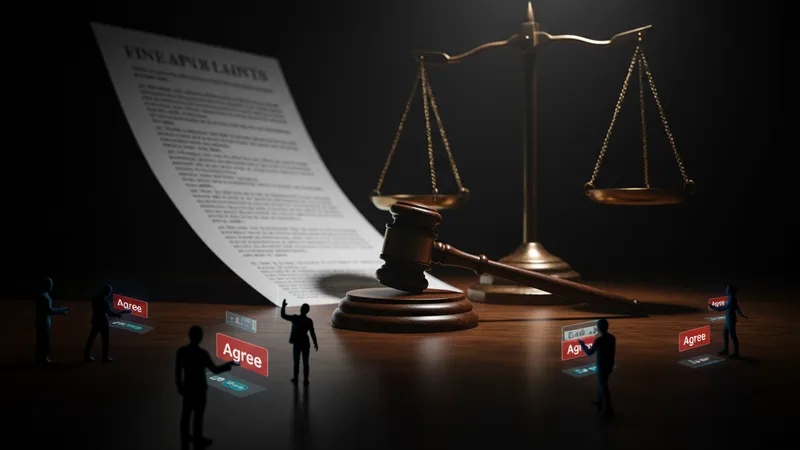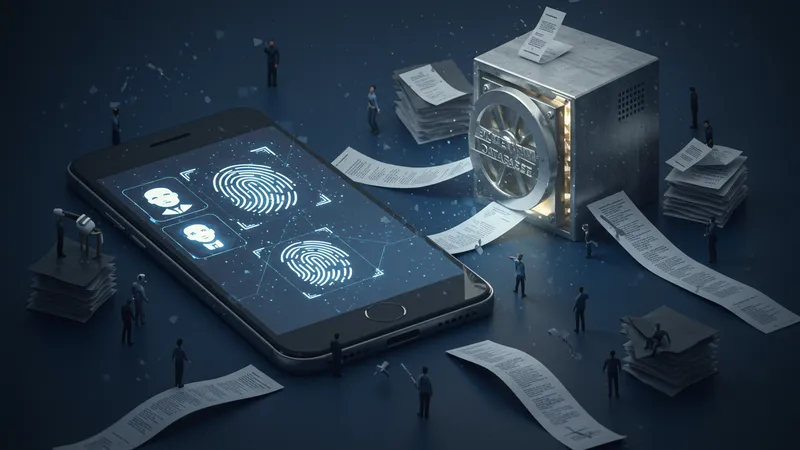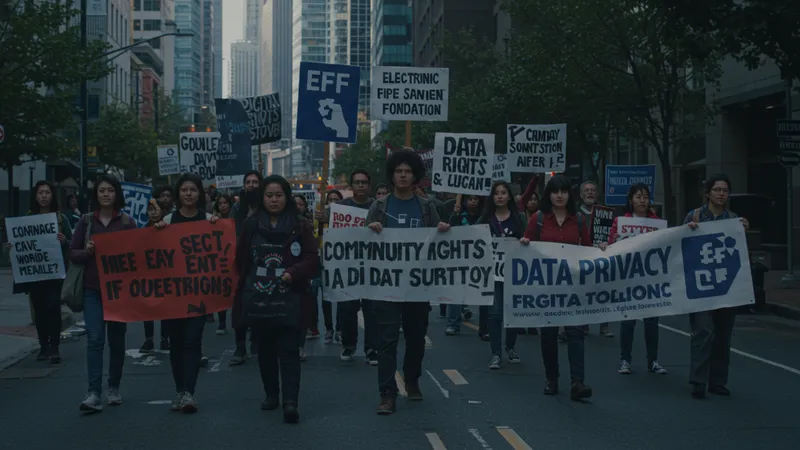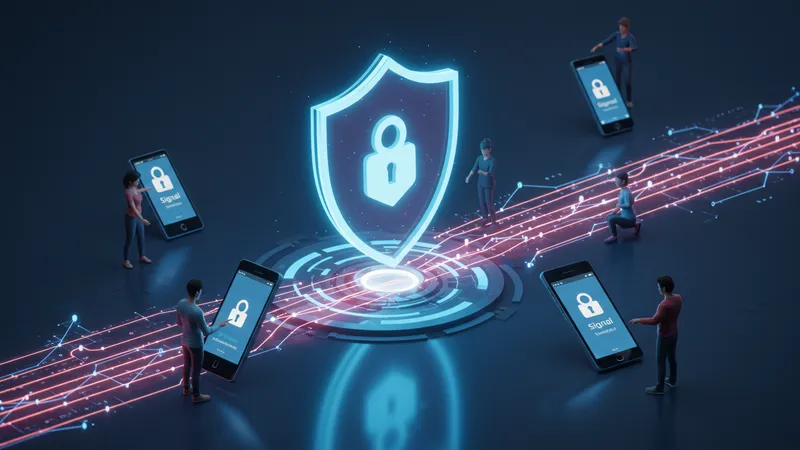

Did you know that every single hour, you're at risk of unknowingly signing away your rights? It sounds terrifying, but it’s a reality in today’s digital age. From clicking “I agree” on a new app to hurriedly accepting new terms of a service, your rights might be slipping through your fingers.
In a world that's more connected than ever, understanding and preserving your rights has never been more crucial. As data collection becomes a norm, we're left wondering: what are we really agreeing to when we scroll through those lengthy terms? Our online and offline lives are merging, and the implications are deeper than you might think.

What if I told you that by ignoring this issue, you're possibly giving away your personal freedoms in ways you never intended? From bank notifications to sudden changes in social media terms, we're often left in the dark about what we're signing up for. But that’s not even the wildest part—these agreements often contain clauses that could allow companies to use your data in ways you'd never expect.
Even more startling, most of these agreements leverage complex legal jargon to intentionally obscure your awareness. It's like willingly stepping into a maze with no map. You might think you're safe because “nothing bad has happened yet,” but what if you found out some companies are collecting not only data but your behavioral patterns too? Just like that, your digital footprint is no longer something you control. But that’s not even the wildest part...
What happens next shocked even the experts: are your rights truly protected when dealing with smart tech, or could they just be an illusion, cleverly painted with legal language? Prepare to dive into a world where the line between your rights and corporate interests blur beyond recognition.
End User License Agreements (EULAs) might just be one of the most overlooked threats to personal rights today. Buried in pages of fine print, these agreements are more than mere formalities. Shockingly, they can contain clauses that waive your rights to a jury trial or allow for data resale without explicit consent. The breadth and reach of these documents are staggering and often entirely unchecked by users.

One study revealed that a staggering 91% of people consent to terms without reading them. This implies a blind trust in corporations, but is this trust well-placed? Surprisingly, many EULAs stipulate that any disputes must be handled through arbitration, limiting your ability to take legal action. This can leave consumers with little recourse if something goes awry, raising the question: are EULAs a tool for consumer protection or control?
But there’s one more twist—some companies intentionally design these agreements to be impenetrable, with the average EULA stretching over 7,000 words of dense legal jargon. Yet, what if I told you this complexity is by design? By overwhelming you with information, these documents leverage cognitive overload, disabling your ability to discern critical rights from mere legal fluff.
What you read next might change how you see this forever. EULAs can transform from being a mild annoyance to a serious consideration. It's not just about apps; cars, household electronics, and even toys are now equipped with software that requires you to agree to terms. Each click strips away a layer of your protection, and we're only just getting started exploring these implications.
In the age of "free" apps and services, the old adage holds more true than ever: if you're not paying for the product, then you are the product. This concept might not sound new, but the depth to which companies exploit this is constantly evolving. Apps that promise seamless integration across your devices often covertly sign away your privacy, trading access to your personal data for convenience.

Recent exposes have revealed that social media apps, while free and ubiquitous, harvest data ranging from your location to your contacts. The scope of this data mining is staggering, enabling advertisers to profile users with unnerving precision. It's not limited to demographics; every like, share, and follow builds a digital dossier that could make George Orwell shudder.
A shocking 60% of users reported feeling uncomfortable yet resigned to these practices, acknowledging they felt powerless to change the terms. You might be underestimating the extent your apps know about you. Does a gaming app really need access to your microphone, and if so, what is it listening for? These questions linger, yet we rarely stop to consider the silent observer lurking in our devices.
Here's the kicker: there’s a growing movement of privacy advocates shedding light on these practices, yet real change hinges on awareness and collective action. Will you stand by and allow your privacy to be sold to the highest bidder, or will you start scrutinizing the agreements you sign more closely? Think twice before you hit ‘Accept’, as taking a proactive stance might be your best defense.
Ever wonder what's lurking in the depths of those endless agreement documents? You might be shocked to learn about indemnity clauses hiding in plain sight. These clauses can transfer responsibility for legal costs and liabilities away from companies—and onto you. Essentially, you could end up paying the price for any misuse, even if unknowingly dragged into a legal quagmire.

In 2023 alone, there has been a notable uptick in consumers becoming tangled in legal disputes due to these clauses. Unbeknownst to them, they had signed away rights when checking that little box. Such legal tricks are often painted as standard procedures but can be loaded with consequences that alter your life's trajectory without warning.
But it gets more perplexing. These clauses are not just confined to software or online apps; they're making their way into hardware products. From smart TVs to automated home security systems, the more our homes integrate with technology, the more we risk entangling our everyday devices with intrusive legal bounds. The seamless experience comes at a price we're often blind to until it's too late.
And here's the catch—while companies continue to protect their interests with rigorous safeguarding methods, most users remain unaware and unguarded. It begs the question: can you truly enjoy the benefits of technology without sacrificing personal security? Are you willing to take the leap into this digital quagmire, or will you shore up your rights before they slip away, unseen and unchecked?
Arbitration clauses—innocuous or insidious? At first glance, they seem merely procedural, a tiny footnote in a vast sea of legalese. But these clauses hide a secret: they waive your right to take disputes to court. Instead, disagreements must be settled in private arbitration, where outcomes can be tilted unfavorably against the consumer.

Recent headlines have brought attention to the disparities in arbitration processes, highlighting cases where consumers faced biased judgments due to the private nature of proceedings. This isn’t just legal mumbo-jumbo—arbitration can force you into a system that lacks transparency and often lacks fair representation as well. It's like signing away the scales of justice unknowingly with every ‘Agree’ button pressed.
But there’s an even bigger picture to consider. Corporations have used arbitration clauses to quash collective legal actions, which means eliminating the ability for consumers to band together for accountability. In essence, individual voices are drowned in a sea of corporate control, with little room for recourse or recompense.
What if arbitration was designed to dissuade legal action by creating what seems an insurmountable barrier to justice? It's a strategic maneuver that raises important questions about safeguarding consumer rights in the future. Are arbitration clauses forcing us into a silent submission, or is there a way to reclaim the power stolen away one click at a time? Stay tuned as we unravel this complex and worrying trend.
Welcome to the new age where your fingerprint or facial recognition can grant access not just to your phone, but also to a company's vast database of your biometric data. As security measures evolve, so do the rights relinquishments that come with them. What's secure to you might be vulnerable to another’s surveillance.

It's alarming to discover the breadth of permissions granted through these seemingly innocuous agreements. By enabling face or touch ID, you could be unwittingly sharing data with third parties. But don't fret—many of these breaches go unnoticed, as they are built into agreements strategically hidden beneath layers of text.
This frontier challenges the fundamental understanding of personal data. In previous times, biometric data was sacred, subject only to personal use. Now, companies argue enhanced user security as a facade to legally harvest and potentially exploit this data. As privacy boundaries blur, it's crucial to stay informed about where your rights truly stand amidst this technological shift.
But here's a twist—despite the urgency of these matters, public awareness remains staggeringly low. Could this apathy be a byproduct of information overload or a complacency nurtured by convenience? In the pages to come, we'll explore the implications of this shift and how your identity, quite literally, becomes a tradable asset in the digital marketplace. Are you ready to unlock the truth?
Smart devices promise unparalleled convenience. From refrigerators that can order groceries to cars that drive themselves, the Internet of Things (IoT) is a marvel as much as it is a menace. But beneath this innovation lies a largely silent threat: security vulnerabilities that expose you to new forms of privacy invasion.

A startling reality is how IoT devices, ranging from home assistants to wearable fitness trackers, regularly collect data. This information doesn't just sit idle—it can be sold, shared, or even hacked. A 2023 report shed light on the fact that over 70% of IoT devices expose personal information to potential cybercriminals due to lax security protocols.
The risks were once limited to personal misuse, but they now extend to malicious exploitation. Cyber threats have evolved from singular incidents to coordinated attacks that can target entire networks of interconnected devices. Imagine your home network breached not just through your computer, but via your digital thermostat or your smart doorbell.
Yet, here's where it gets curious—the future of IoT security lies not in stronger defenses but in smarter regulations. How can we protect what we can't see? It's a pressing question as the allure of convenience makes the race against vulnerabilities an ongoing battle. As you ponder these questions, consider the balance between embracing innovation and guarding against potentially grievous infringements on your personal privacy.
Technology is advancing at a breathtaking pace, bringing along unforeseen consequences that most users remain blissfully unaware of. The race for innovation often leaves in its wake a trail of ethical quandaries and rights concerns that very few are equipped to address. Consider how tech companies prioritize speed over security, often leaving holes for exploitation.

The fast pace of adoption has led some experts to liken it to the Wild West—untamed, lawless, and unpredictable. Amidst this frantic growth, consumer rights are often sacrificed on the altar of progress. This rampant growth fuels questions about accountability: who takes the fall when innovation trumps safety?
But perhaps the most surprising twist is how this breaks traditional molds of consumer relationships. Instead of fostering transparency and trust, the rapid deployment of new technologies often obscures the user's understanding and undermines informed consent. As more devices enter the market, the layered complexity of agreements only escalates, leaving users more baffled than before.
Are we creating a future where the everyday consumer is perpetually playing catch-up with innovation? As we delve into this topic, we’ll explore how speed has replaced care and how your rights bear the brunt of this marathon pace. It’s a challenge to remain vigilant, as staying informed becomes a race against the relentless tide of technological advancement.
As our lives become digitized, cybersecurity stands at the forefront of protecting our rights. It offers a glimmer of hope amidst the chaos of data breaches and identity theft. The realm of cybersecurity thrives on innovation, but it also battles an ever-evolving enemy—a cat-and-mouse game played on a global scale.

But cybersecurity isn’t merely a tool; it’s a sophisticated dance between safeguarding infrastructure and maintaining personal privacy. Companies like FortiGuard Labs are focusing on real-time threat intelligence, working tirelessly to patch vulnerabilities. Yet, despite best efforts, many organizations remain one step behind cybercriminals, highlighting the never-ending battle between security and infringement.
Interestingly, regulatory frameworks lag behind technological capabilities, often rendering efforts at digital rights preservation futile. It's akin to trying to mend a crack in the dam while the water continues to rise. Automation and AI offer promise, yet they too face vulnerabilities of their own, presenting a complex puzzle of modern interdependencies.
Still, hope is not lost. Awareness serves as a powerful ally in the fight for a secure digital sphere. In the next segment, you'll find revelations on how new legislation aims to close these security gaps while empowering consumers to take charge of their digital lives. But can policy make headway where technology outpaces regulation?
The tide is shifting as new regulations target the digital behemoths that once operated unchallenged. Privacy laws are evolving, notably with the introduction of frameworks like the General Data Protection Regulation (GDPR) in Europe and the less-publicized, yet significant, California Consumer Privacy Act (CCPA) in the United States.

These laws are more than just words on paper; they redefine the relationship between consumers and companies, stipulating that users have a right to know how their data is used and can demand its deletion. It’s a strengthening of rights not just in theory but in practice, offering practical steps for remediation.
However, not all companies comply smoothly. Pressure on industries is growing, with numerous firms facing hefty fines for non-compliance. Understanding these regulatory contexts is essential in harnessing the power they afford you. Are you prepared to capitalize on these rights, or will you continue to passively trust corporate accountability?
But here's the fascinating part—while regulatory laws provide the framework, they prompt a cultural shift towards valuing privacy. This climate of change cultivates an empowered consumer base poised to question, challenge, and ultimately reclaim control over their digital destinies. What lies ahead is more than legislation; it’s an emerging era of digital conscientiousness. Are you ready to be part of this transformation?
Community activism is fast becoming a powerful force in the struggle for digital rights. Volunteers and advocacy groups rally to educate the public, push for transparency, and demand changes in policies that impact personal freedoms. Nothing screams empowerment louder than collective action in the face of overbearing corporate control.

Organizations like the Electronic Frontier Foundation (EFF) play crucial roles, acting as watchdogs and lobbying for more robust privacy protections. Their campaigns have championed causes ranging from net neutrality to data protection, often leading to concrete legislative advancements worldwide. But how effective can these groups be when faced with deep-pocketed industry giants?
However, community activism isn't without its hurdles. It requires widespread participation to spark significant change, relying on people from all walks of life to rally behind the cause. This movement endeavors to convert passive digital product users into proactive defenders of their rights.
But perhaps the most exciting revelation is how technology itself is used to catalyze advocacy efforts, creating a feedback loop of innovation and protection. Community activism doesn't just demand change; it facilitates the very mechanisms to ensure our privacy is more than just a privilege. The question remains: will enough voices rise to tip the scales, or does the battle continue to require more than what meets the eye?
Technology is not just part of the problem; it’s also part of the solution. As issues surrounding privacy and rights surface, innovative solutions emerge, offering new layers of protection. Companies and developers are creating tools that not only secure data but empower consumers to manage own privacy.

The emergence of privacy-centric apps like Signal have shown the power of encryption in safeguarding communications from prying eyes, reshaping the narrative around digital privacy. Better yet, end-to-end encryption enables conversations to stay private, a feature more users demand as awareness of data misuse grows.
Could blockchain technology present the next frontier for secure data management? Its decentralized nature implies fewer intermediaries, reducing vulnerability points and fostering transparent transactions. Imagine securing personal data akin to guarding cryptocurrency, shifting power away from third parties and back to the individual.
Here’s the kicker: as technology evolves, so does our capability to leverage it for defense rather than intrusion. The possibilities are endless, and as we conclude this journey, be prepared to explore how technology will continually redefine what digital rights truly mean in a connected society. Are you ready to champion these tools to ensure your personal security?
A transformation in the public’s perception of privacy has begun. Once considered a compromise for convenience, privacy is now recognized as a non-negotiable right, influencing consumer behaviors and changing standard practices across industries. This cultural shift has provoked companies to reconsider their approach to data handling.

The push towards ethical data management reflects a world where privacy is synonymous with value and integrity. As swathes of the public become more privacy-conscious, companies are rewarded for transparency and penalized for obfuscation. This change echoes a new consumer loyalty model where privacy isn’t merely a selling point—it’s an expectation.
Yet this shift creates challenges as well. Balancing transparency with innovation requires a delicate equilibrium, as businesses strive to maintain functionality while respecting boundaries. The stakes are high, but the rewards of embracing a privacy-centric ethos are undeniable—a competitive advantage in a market influenced by tech-savvy consumers.
But let’s zoom in—the real winners of this cultural move are the everyday users who stand to gain empowerment and insight into the digital economy. As privacy comes to the forefront, you must ask yourself: are you a passive participant in this evolution, or an informed navigator steering towards an open, transparent future?
The digital landscape continually reshapes itself, audaciously pushing boundaries and redefining what it means to be a rights-holder in the digital age. As we progress, the emerging narrative surrounding digital rights promises both innovation and complexity. With each advancement, the tension between technological capabilities and ethical boundaries heightens.

Consider the path ahead: artificial intelligence could become the protector of rights or the architect of new limitations. As AI algorithms grow more sophisticated, they hold the potential to either enhance privacy measures or deepen concerns about surveillance and autonomy infringement.
Your engagement with this future starts with building awareness. Are you informed about how your data is used, and are you prepared to advocate for your rights both on and offline? The digital rights discourse demands active participation, setting the stage for reforms grounded in transparency, respect, and accountability.
The final realization is that the realm of digital rights is not just a reactive space but a proactive one. Your role isn’t merely to adapt to change but to inspire it. Are you ready to be at the forefront of this movement, steering towards a horizon where your rights are not just something to protect but something to enhance? Together, we craft the story of what comes next.
As we conclude this exploration of rights in the digital era, one thing is resoundingly clear: the narrative of digital rights is as much yours to influence as it is to follow. Every interaction, every decision, and every moment online contributes to the larger tapestry of rights and privacy.

Education emerges as the keystone of empowerment, arming individuals with the knowledge necessary to navigate digital complexities and champion rights. The journey extends beyond awareness into action, an invitation to engage with policies, platforms, and technologies actively.
We stand at a crossroads—a chance to redefine what rights mean in this digital age. Will you choose to innovate, advocate, and embolden the steps we take towards securing digital freedoms? Your voice holds power in this shared pursuit of a balanced digital society.
In closing, here’s your call to action: share this journey, bookmark these insights, and step forward as an active participant in your digital destiny. What you do next will not only shape your future but redefine what protecting your rights, every hour, truly means.